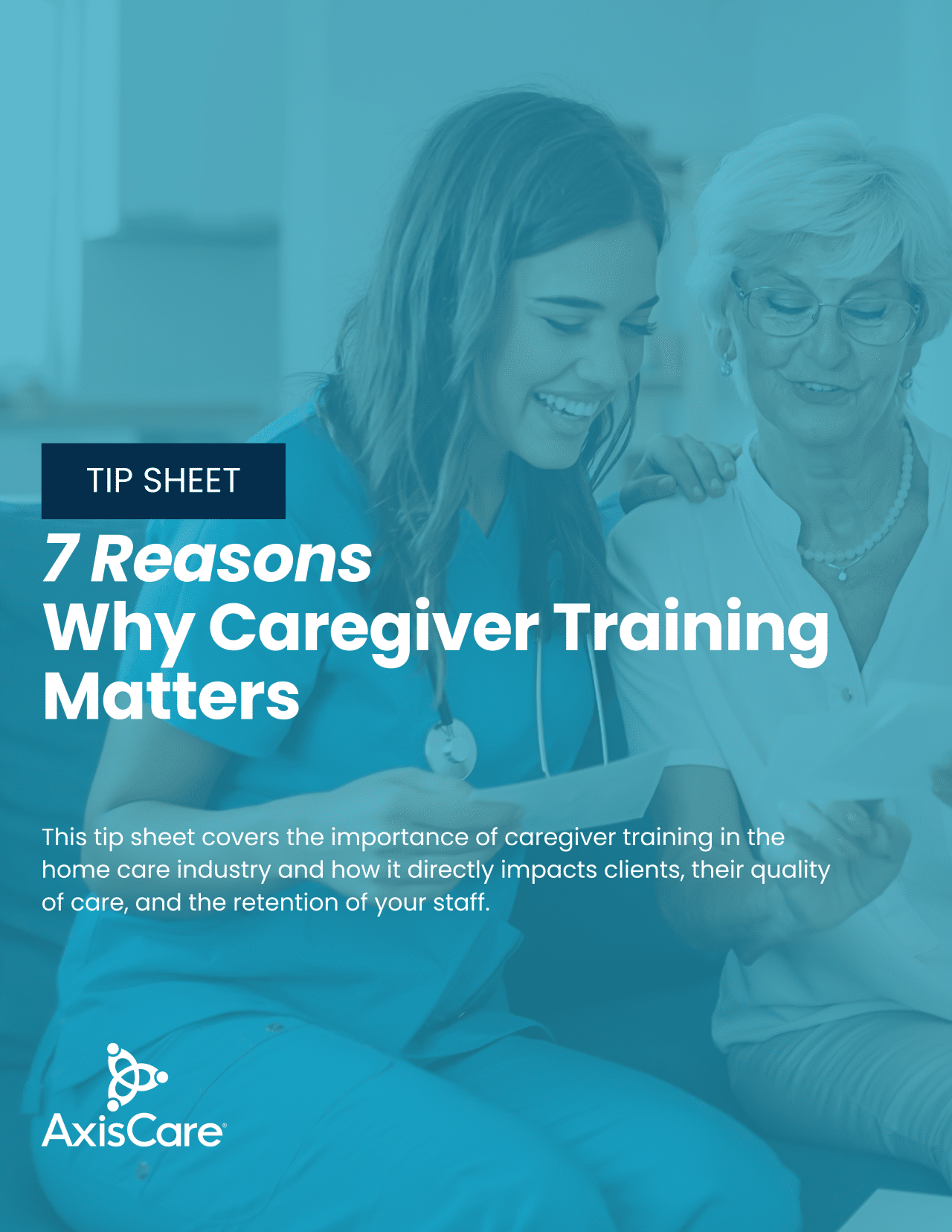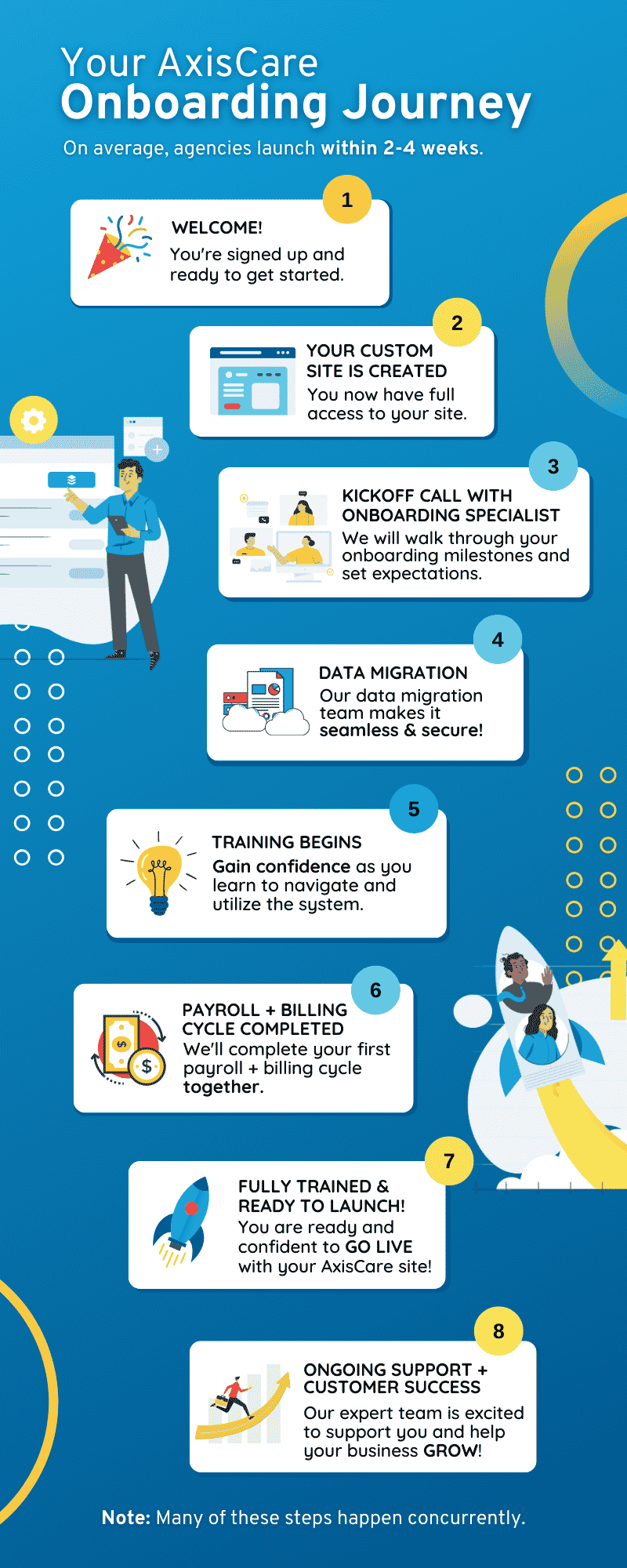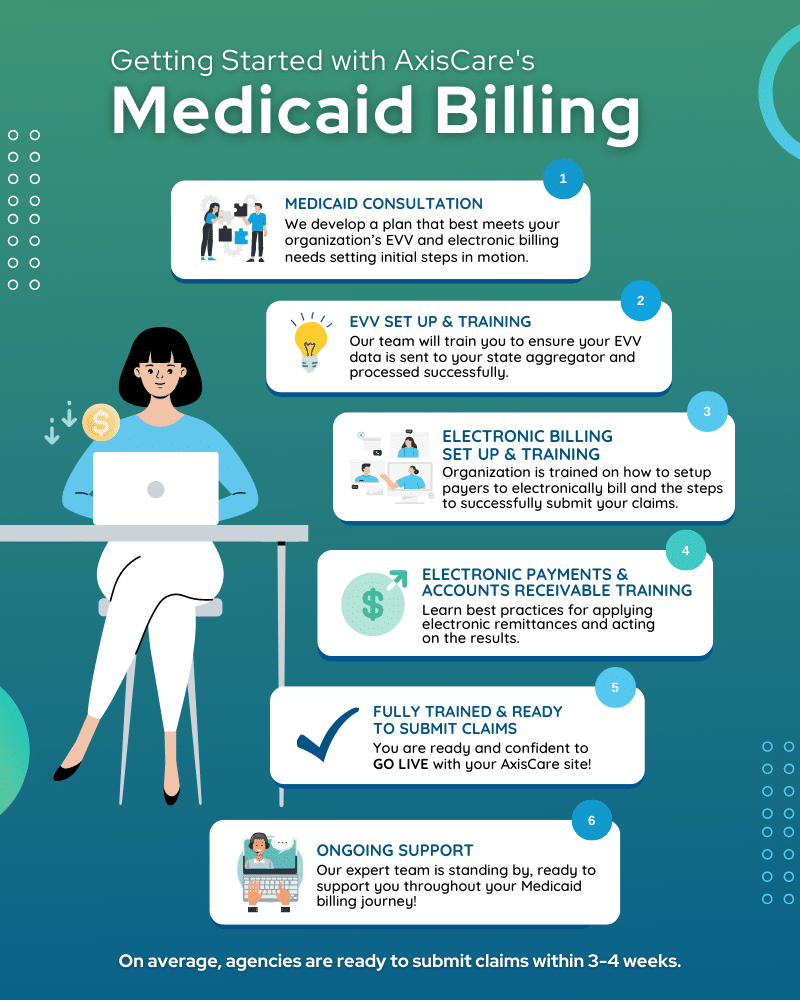Tip Sheet: 7 Reasons Why Caregiver Training Matters
This tip sheet covers the importance of caregiver training in the home care industry and how it directly impacts clients, their quality of care, and the retention of your staff.
In the home care space, proper caregiver training isn’t just a must for delivering quality care. It’s also a tool to help agencies retain their employees and empower them in their roles. As a key part of the caregiver onboarding process, your training strategy requires its share of thought and consideration – so if you’re currently holding single-day workshops in a spare office, it’s time to rethink your approach.
Before you begin, it’s important to understand the purpose behind your efforts; let’s dive into 7 reasons why caregiver training matters.
Download to continue reading…






